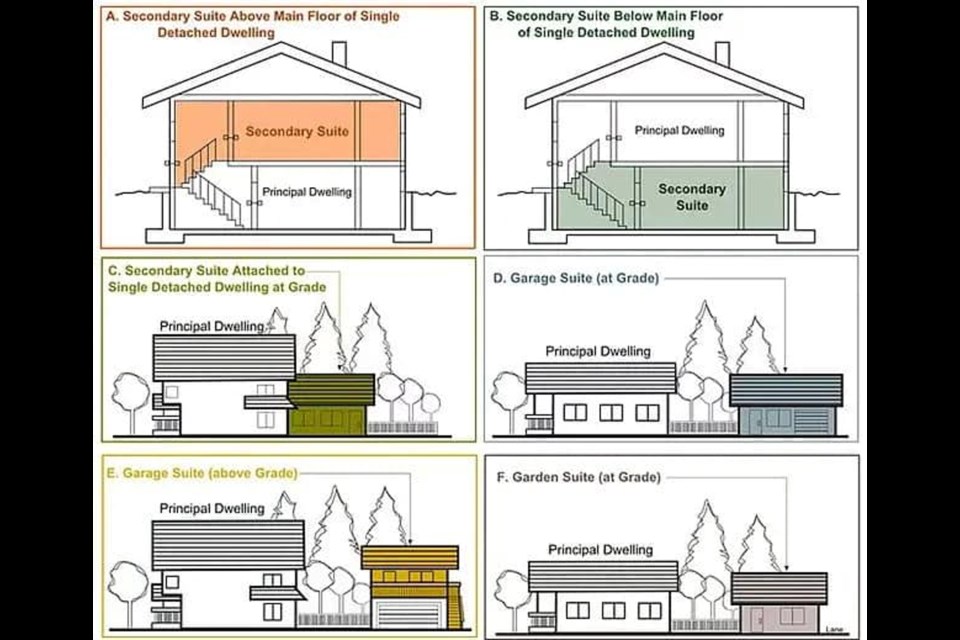Midland Mayor Bill Gordon would like people to start thinking outside of the box to help address the ongoing housing crisis.
According to Gordon, one of the tools in the provincial government’s ‘Cutting Red Tape To Build More Homes Act’ (Bill 185) was designed to remove barriers for additional residential units.
Gordon says the changes mean a person has the right and doesn’t need to apply to the municipality for rezoning for up to three units on any parcel of land in a settlement area like Midland that has its own municipal water and sewer services.
“Changes include the removal of development charges, number of bedrooms, minimum unit size, lot coverage and parking requirements,” Gordon says.
“This allows anyone who wants to add these extra living spaces to do so with less costs and far less bureaucracy.”
As well, Gordon says that besides municipal calls on the province to fund more homelessness supports, transitional housing and affordable/subsidized housing, this is a way for willing homeowners and landowners to participate, get funding, save the fees, bypass the previous planning hurdles and earn some additional income from their homes and properties.
And while some might wonder why anyone would want to become a landlord, Gordon says that “most tenants are law-abiding, rent-paying and low maintenance, grateful for a place to call home and often pay off any debt or mortgages that their landlords have, many times over.”
Census data shows that 34% of Midland households are renting while 65% own their homes.
“There are bad actors, exacerbated by the pandemic years who engaged in rent strikes and have bought into the rhetoric that most landlords are greedy, opportunistic and heartless,” Gordon says in addressing certain issues that have come forward recently and created a different dynamic in the rental marketplace.
“While I have no doubt that this may be true of some, like in any business, it is unfair to paint them all with the same brush.”
Gordon says when reviewing Ontario Landlord and Tenant Board decisions, one can see bad actors on both sides of the equation.
“That is only exacerbated by the backlogs that interfere with timely hearings and decisions," he says.
As a landlord himself, Gordon says he’s had both positive and negative experiences with the good outweighing the bad.
“I believe that we all have a role to play in solving this housing crisis and if anyone has the ability and desire, there are tools available to help make that happen,” he says.
“Alternatively, we do nothing and simply wait for someone else to solve the problems, be it the government or other landlords.”
When asked if he has plans to add a suite, Gordon says he practises what he preaches.
“My wife and I plan on downsizing the family home in the coming years and we own a rental property that we plan to move into once we reach that point in our lives,” he says.
“As a result, I am participating in the rental housing market with sub-market rents and a great tenant. My main property has the space for an ADU (accessory dwelling unit), and I am considering that option for my in-laws as they age out of their family home.
“I am a happy landlord and doing my part and hope to inspire others with the capacity and desire to join me.”
When asked about the potential to build smaller homes and/or follow a gentle density model, Gordon says Midland's planning team works hard with each development application to encourage more density and avoid sprawl.
“All the developments that we've worked hard to approve this term feature small town houses, multi-story rental buildings/condos and some are offering the secondary suite to their buyers as an option, either finished or pre-serviced,” Gordon says.
“The biggest impediment to our housing applications is still NIMBY,” Gordon says, referring to neighbours who might not want a certain development occurring nearby.
“Attend any of the mandatory public meetings and listen to the concerns raised against housing development. The reality is that if we deny these applications, the developer will appeal, and likely win based solely on their efforts to build more homes and a municipality's gatekeeping denying that growth.”
Gordon says that the bottom line remains that people tend to blame this housing crisis on immigration, foreign students, past governments, current governments, specific political leaders and greedy landlords.
“While there may be some truth to some or all these beliefs, the fact remains that the economy is the biggest impediment to growth and the result is a supply that is far below demand, which increases the costs to own and rent,” he says.
And Gordon says there are some who may be risk averse or don’t want to move away from the status quo.
“Anything in life worth doing comes with risk,” he says. “We shouldn't let that fear stop us from moving ahead for whatever motivates us, which could be as simple as needing some rental income to help pay the mortgage, or to use for your kids’ education or to help them save for downpayment for their first home, or as altruistic as providing sub-market rents to help someone out the way you likely had help in years gone by.”
